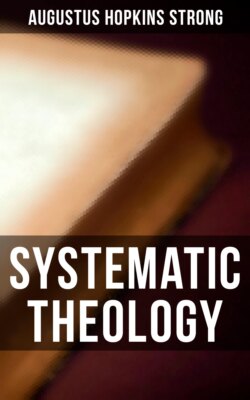Читать книгу Systematic Theology - Augustus Hopkins Strong - Страница 48
На сайте Литреса книга снята с продажи.
Chapter III. Erroneous Explanations, And Conclusion.
ОглавлениеTable of Contents
Any correct explanation of the universe must postulate an intuitive knowledge of the existence of the external world, of self, and of God. The desire for scientific unity, however, has occasioned attempts to reduce these three factors to one, and according as one or another of the three has been regarded as the all-inclusive principle, the result has been Materialism, Materialistic Idealism, or Idealistic Pantheism. This scientific impulse is better satisfied by a system which we may designate as Ethical Monism.
We may summarize the present chapter as follows: 1. Materialism: Universe = Atoms. Reply: Atoms can do nothing without force, and can be nothing (intelligible) without ideas. 2. Materialistic Idealism: Universe = Force + Ideas. Reply: Ideas belong to Mind, and Force can be exerted only by Will. 3. Idealistic Pantheism: Universe = Immanent and Impersonal Mind and Will. Reply: Spirit in man shows that the Infinite Spirit must be Transcendent and Personal Mind and Will. We are led from these three forms of error to a conclusion which we may denominate 4. Ethical Monism: Universe = Finite, partial, graded manifestation of the divine Life; Matter being God's self-limitation under the law of necessity, Humanity being God's self-limitation under the law of freedom, Incarnation and Atonement being God's self-limitations under the law of grace. Metaphysical Monism, or the doctrine of one Substance, Principle, or Ground of Being, is consistent with Psychological Dualism, or the doctrine that the soul is personally distinct from matter on the one hand and from God on the other.
